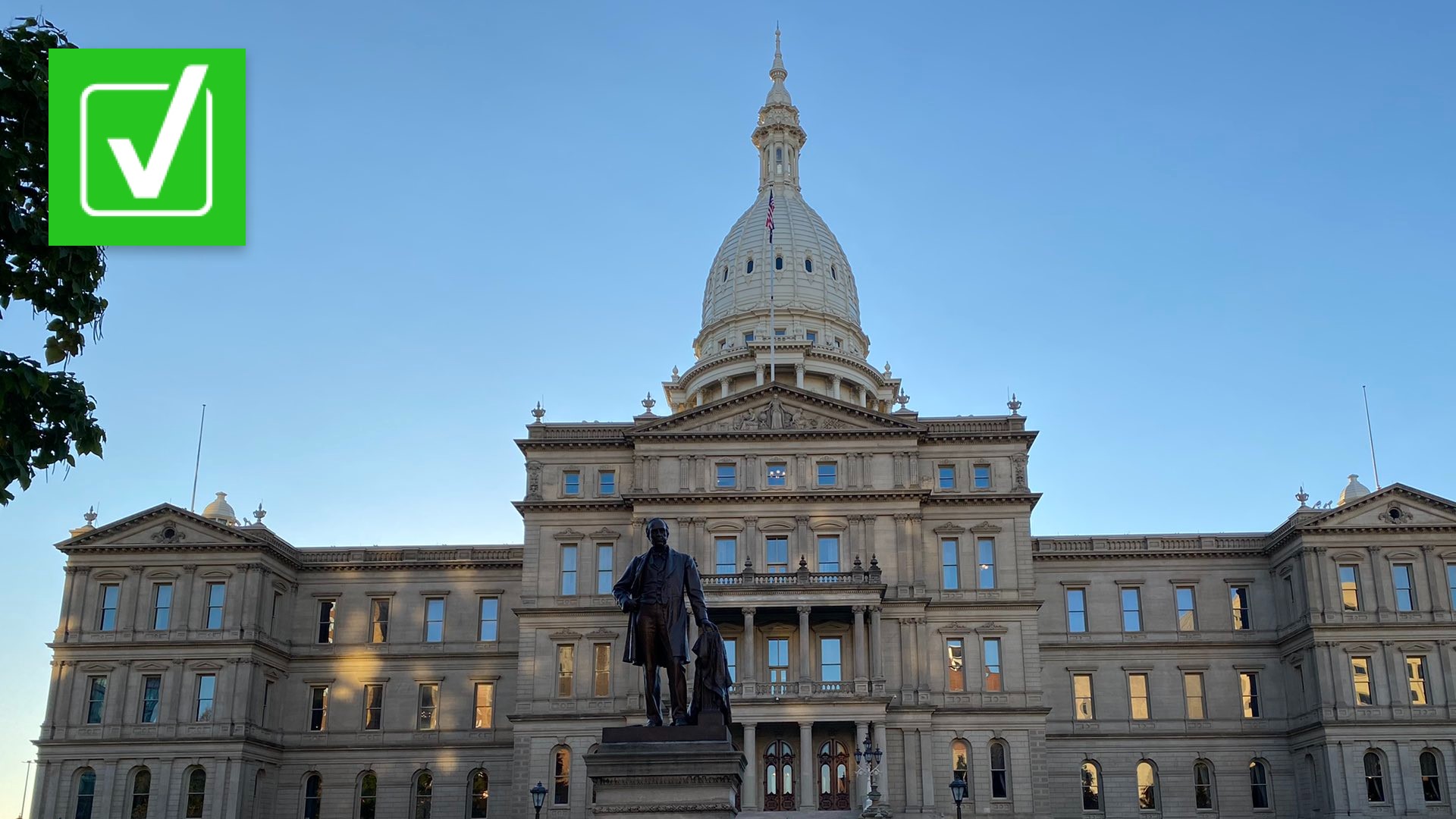LANSING, Mich. — In a special election, State Representative Mark Huizenga took more than 60% of the vote to move into a vacant Senate seat.
Huizenga (R-Walker) previously served as the state representative for the 74th district, which serves the cities of Walker, Grandville, Rockford and Cedar Springs, as well as Solon, Tyrone, Sparta, Algoma and Alpine townships.
That Senate seat was vacated by Republican Peter MacGregor, who was elected Kent County treasurer last November.
Once the election is certified, Huizenga will be moving from the House to take the Senate seat. Although the election results are not certified yet, they should be by the end of the week.
Users online wondered if they will have to pay to get representation in their House district since now the 74th District will be empty.
THE QUESTION
Will taxpayers have to pay for a special election to elect a new House representative?
THE SOURCES
- Michigan Election Code 168.634
- Lisa Posthumus Lyons, Kent County Clerk
- State Rep. Mark Huizenga (R-Walker)
- Michigan Department of State
THE ANSWER
Yes, if there is a special election for Huizenga's soon-to-be empty house seat, taxpayers will be paying the cost. But we can also verify that if a special election doesn't take place, taxpayers won't need to pay. It all depends on the Governor.
WHAT WE FOUND
Michigan Election Code states that "Except as otherwise provided in this section, when a vacancy occurs in the office of senator or representative in the state legislature, the governor may call a special election in that senatorial or representative district or direct that the vacancy be filled at the next general election."
This means Governor Whitmer has the authority to hold a special election to fill Huizenga's seat or to just wait until the next primary and general, Clerk Lyons said.
"Those costs need to be, you know, weighed with the benefit of the importance of the people having representation in the house," she added. "They would also want to look at the length of time the seat is vacant before the next regular election when the seat would be filled."
The 74th House District has about 30 precincts and each precinct would need about $3,000 dollars to support another election, she said. General and primary elections could cost about $150-200,000 each, but they are reimbursed and don't cost taxpayers. Special elections could cost the same amount, but they are not reimbursed.
"We should remember that every election costs the taxpayers because they are publicly funded, as they should be," she said. "The only time the state reimburses the local entities is when there is a statewide ballot proposal in any odd-year election or in May of even years. Any other election, the costs are incurred at the local level, both county and city/township.
"Well, the money comes from you, the taxpayers. Those costs are incurred by, you know, if they put a question on the ballot, they pay for their share and of the cost along with if there's a township or city ballot proposal they pay for their costs. So that's why it's really difficult to pinpoint, we just have to estimate with our best knowledge."
A lot of factors are involved here, namely, if the election is scheduled to overlap with a previously slated election, Michigan Department of State spokesperson Tracy Wimmer said. That's why it is difficult to determine the specific cost of a special election vs. election costs overall, she added.
Representative Huizenga said that he is used to stepping in to help constituents in the house while the senate seat was vacant. So if a special election doesn't occur before the next big primary, it shouldn't be too detrimental.
"I think at the end of the day that if people know that they can, they can contact our office that will stand up and support them," he said. "So I think that it's probably less relevant than people might think, they may lack representation for a particular vote."
Whether or not the special election costs extra dollars depends on the date on which the special election is called. For example, if the Governor were to call a special election for August or November next year, the special election wouldn’t cost the taxpayers extra dollars because we will already be conducting an election in those jurisdictions on those dates. If it’s called in May, it would likely be an extra cost because it’s not certain whether or not those jurisdictions would have conducted an election otherwise.
"The bottom line is, it just depends on when and if the governor calls a special election, it may cost the taxpayers nothing additional, but you just don't know what the governor will choose to do," Lyons added.
If you have a question you want Morgan Trau and the 13 ON YOUR SIDE VERIFY Team to look into, email Verify@13onyourside.com. You can also text the word VERIFY to 616-559-1310.
►Make it easy to keep up to date with more stories like this. Download the 13 ON YOUR SIDE app now.
Have a news tip? Email news@13onyourside.com, visit our Facebook page or Twitter. Subscribe to our YouTube channel.

